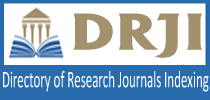Analysis of the Book "Arab Economics" at the Faculty of Islamic Economics and Business on Ibn Khaldun's Theory
Abstract
The teaching of Arabic in Islamic universities faces many problems, including the lack of special educational materials and used by each teacher differently, the existing class is few than he had to perform for four skills, the lack of vocabulary to practice the language skill, and in addition to the lack of enthusiasm in learning Arabic only from the Faculty of Arabic Language Teaching only. The aim of this study is to know the objectives, material, method and evaluation of the book "Arab Economic" on the theory of Ibn Khaldun, and this research of the type of qualitative descriptive study, the researcher observed the Arabic book of economics, and the evidence and its sources of objectives, material, method and evaluation in the Arab book of economics, collected books and documents in the style of analysis of the doctrine of Mehlis and Hubermin. It is concluded that Ibn Khaldun's theory towards the goals, material, method and evaluation in this book Arabic economics is: the goal aspect includes improving thinking, improving society and improving spirituality suitable for improving thinking for the community of the Faculty of Economics with good Arabic language and the Holy Quran. In terms of the subject, it includes conversation, vocabulary, grammar and exercises to understand the language like the queen at the Faculty of Economics. In terms of method, it is appropriate to gradually or repetition, discussion and exemplary in the process of teaching economic Arabic writers. In terms of the calendar, it has exercises, exercises and songs to support the acquisition of the four language skills. The final result of this research is that the Arabic book of economics has helped students at the Faculty of Economics and Business to learn the fun Arabic language and train the four skills according to the practice of objectives, material, method and evaluation according to Ibn Khaldun.
Keywords
Full Text:
PDFReferences
Adina, R. N., & Wantini, W. (2023). Relevansi Pemikiran Pendidikan Ibnu Khaldun pada Pendidikan Islam Era Modern. Ideguru: Jurnal Karya Ilmiah Guru. https://doi.org/10.51169/ideguru.v8i2.514
Afifah, N. (2012). Pemikiran Ibnu Khaldun tentang Pendidikan. Naskah Publikasi.
Al Ahqaf, M. I. (2021). Analisis Kelayakan Bahan Ajar Bahasa Arab Untuk Madrasah Tsanawiyah. Jurnal Al-Maqayis. https://doi.org/10.18592/jams.v6i2.5450
Fadli, M. R. (2021). Memahami desain metode penelitian kualitatif. HUMANIKA. https://doi.org/10.21831/hum.v21i1.38075
Hasan, H. (2018). Psikolinguistik: Urgensi Dan Manfaatnya Pada Program Studi Pendidikan Bahasa Arab. Al Mi’yar: Jurnal Ilmiah Pembelajaran Bahasa Arab Dan Kebahasaaraban. https://doi.org/10.35931/am.v1i2.41
Hidayanti, P. N. Y., Sa’diyah, M., & Andaru Bahy, M. B. (2022). Hakikat Pendidikan Menurut Ibnu Khaldun. Islamadina : Jurnal Pemikiran Islam. https://doi.org/10.30595/islamadina.v23i2.9466
Hikmah, N. (2020). Tarqiyah Dafi’iyyah al-Thalabah fi Ta’lim al-Lughah al-Arabiyyah bi Musyahadah al-Musalsal al-Turkiy “Laa Ahad Ya’lam” fi Marhalah al-Jami’ah. Asalibuna. https://doi.org/10.30762/asa.v4i1.1933
Imam Gunawan, M. P. K. (2013). Metode Penelitian Kualitatif Teori & Praktik. In Teori dan Praktik, (Jakarta: Bumi Aksara, 2013), hal 80-83.
In’ami, M., Akbar, A., & Zubairi, A. (2022). Rusydi Ahmad Thuáimah: Maharah al-Qiraáh wa Ta’limuha. Tanwir Arabiyyah: Arabic As Foreign Language Journal, 2(1), 11–20.
Isman, N., Nuradi, N., Mufarokah, S., & Gazali, Z. (2023). Tahlilul bi Naud As’ ilah al-Tadribat li Shaf al-Tsani al-Mutawashit fi Kitab Ta’lim al-Lughah al-‘Arabiyyah li Wizarah al-Syu’un al-Diniyyah al-Indunisiyyah ‘Am 2022. Tanwir Arabiyyah: Arabic As Foreign Language Journal, 3(2), 77–96.
Khoiriyah, T. E., Maksum, M. N. R., & Ali, M. (2023). Konsep Kurikulum dan Metode Pendidikan Islam Perspektif Ibnu Khaldun. JIIP - Jurnal Ilmiah Ilmu Pendidikan. https://doi.org/10.54371/jiip.v6i5.1678
Khumaidah, S., & Hidayati, R. N. (2021). Perbandingan Pemikiran Ibnu Khaldun Dan Al-Ghazali Tentang Pendidikan Islam Dan Relevansinya Terhadap Pendidikan Di Indonesia. Tarbiyatuna: Jurnal Pendidikan Islam.
Kurniandini, S., Chailani, M. I., & Fahrub, A. W. (2022). Pemikiran Ibnu Khaldun (Pragmatis-Instrumental) Tentang Pendidikan Dan Relevansinya Dengan Dunia Modern. Jurnal Pendidikan. https://doi.org/10.32585/jp.v31i3.2864
Malahayatie, M. (2023). Studi Pemikiran Ekonomi Islam Ibnu Khaldun. Mubeza.
Nafsaka, Z., Kambali, K., Sayudin, S., & Widya Astuti, A. (2023). Dinamika Pendidikan Karakter Dalam Perspektif Ibnu Khaldun: Menjawab Tantangan Pendidikan Islam Modern. Jurnal Impresi Indonesia. https://doi.org/10.58344/jii.v2i9.3211
Nurjan, S. (2016). Psikologi Belajar. In Wade Group.
Padmowihardjo, S. (2014). Psikologi Belajar Mengajar. Pengertian Psikologi Belajar Mengajar Dan Definisi Proses Belajar.
Pasiska, P. (2019). Epistemologi Metode Pendidikan Islam Ibnu Khaldun. EL-Ghiroh. https://doi.org/10.37092/el-ghiroh.v17i02.104
Prabowo, S. (2019). المشكلات غير اللغوي ة في تعليم اللغة العربية بمدرسة الرحمة الابتدائية الإسلامية سورابايا. Jurnal Al-Fawa’id : Jurnal Agama Dan Bahasa. https://doi.org/10.54214/alfawaid.vol10.iss1.95
Semiawan, C. R. (2010). Penelitian Kualitatif : Metode Penelitian Kualitatif. Jurnal EQUILIBRIUM.
Wajdi, M. B. N. (2015). Pendidikan Ideal Menurut Ibnu Khaldun dalam Muqaddimah. Jurnal Lentera: Kajian Keagamaan, Keilmuan Dan Teknologi.
DOI: https://doi.org/10.31869/aflj.v4i1.5447
Article Metrics
Abstract view : 59 timesPDF - 16 times
Refbacks
- There are currently no refbacks.
INDEXED BY:








 This work is licensed under a Creative Commons Attribution-ShareAlike 4.0 International License.
This work is licensed under a Creative Commons Attribution-ShareAlike 4.0 International License.




